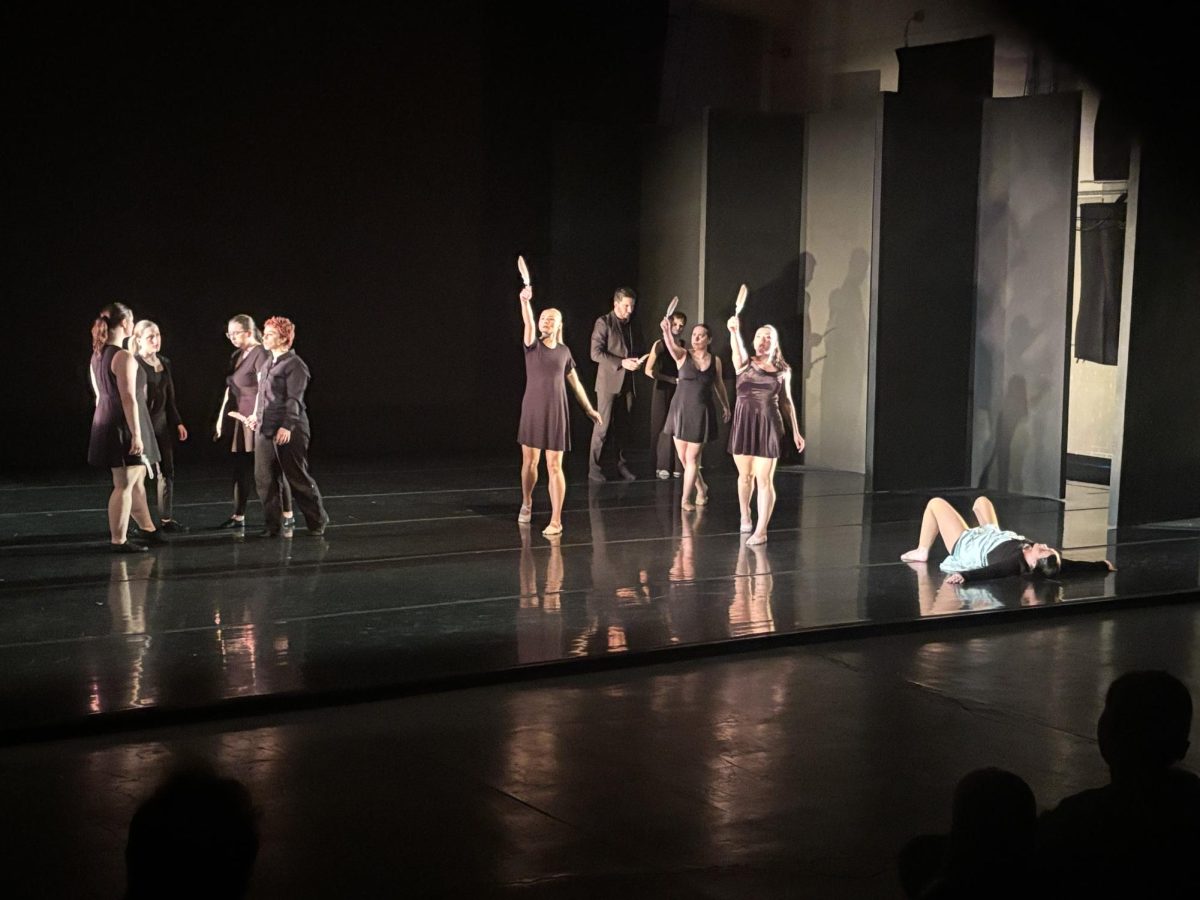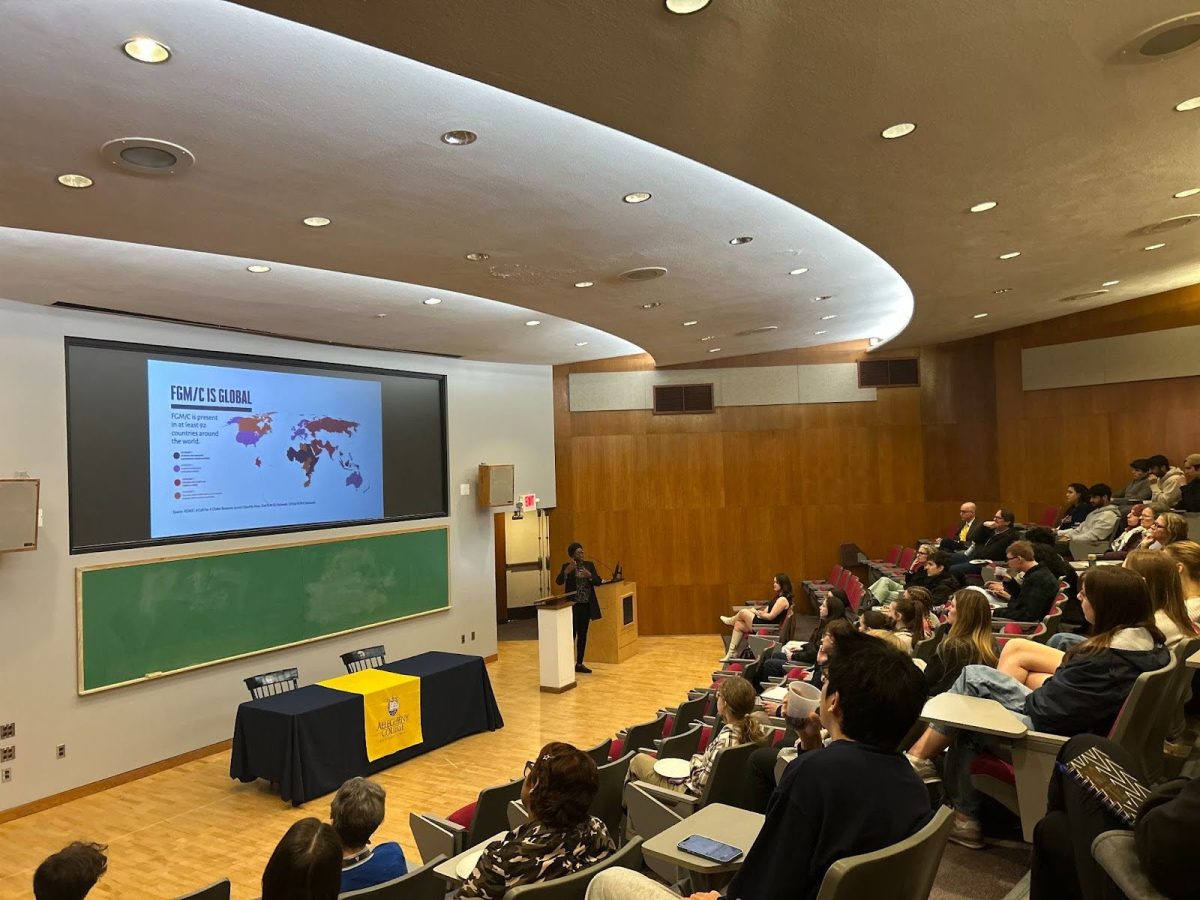By CLAIRE TEAGUE
Features Editor
teaguec@allegheny.edu
Benjamin Busch, Lieutenant Colonel of the Marine Corps, Iraq war veteran, actor, photographer, film director and award-winning author visited campus to participate in the Single Voice Reading Series. He read from his memoir “Dust to Dust,” which is the story of his life as a soldier and an artist that combines his childhood adventures with his military experiences. This Single Voice Reading was unique because it marked a father-son appearance nearly 10 years apart. Frederick Busch, Benjamin’s father, gave a fiction reading at Allegheny a decade ago in Ford Chapel.
“Dust to Dust” won the Great Lakes Colleges Association New Writers Award in Nonfiction in 2013. The book follows major events through Busch’s life with every chapter beginning in childhood and following a theme or idea through Busch’s adult life.
“I really wanted to build a meditation that revealed all of us to be inseparable in this landscape, in our collective journey. That we all carry a history of stories, no matter what our personal choices have been and it’s really our choices that I wanted to awaken you to,” Busch said in his introduction.
Following his graduation from Vassar College where he majored in studio art, Busch served as an infantry officer in the United States Marine Corps and was deployed for two tours in Iraq. He read from multiple chapters which covered contrasting periods in his life, from 10 weeks of Officer Candidate School for the Marines to a winter drive with his family in New York State, concluding with a meditation on impermanence through a section on sand.
The first and longest section he read from catalogued his experiences at OSC when he was the same age as the majority of the people in the room. His writing was reflective, humorous and at some points difficult to believe as he relayed the grueling challenges he faced as an officer in training. These experiences notably touched the audience.
In describing the demanding nature of the training, he notes that anyone sent to the infirmary was not likely to return in part because of the “pain is weakness leaving the body” military mindset. Around four weeks into the program Busch twisted his ankle. In order to avoid being sent home, he would wrap it every night in duct tape, creating a makeshift brace to get him through the five to seven miles they were running each day.
“I remembered my father’s lesson. Anything could be repaired with duct tape,” Busch read.
A particularly moving segment of his reading described a final run the trainees made in the heat and humidity of summertime Virginia. With temperatures in the 90s and the threat of heat stroke and dehydration high, the candidates pressed on.
“I caught sight of the parade deck, the last place I had to stand. Several candidates had already fallen. My heart was racing with blood that must’ve been thick as oil. I got dizzy and everything was too bright. I thought of the lights as I went into surgery for my knee in high school, the dead lieutenants, how I was about to fall and how I couldn’t,” Busch read.
Students commented that they felt a connection to Busch’s readings, particularly those of his experiences at training camp in Virginia, because of the element of self-discovery as well as through personal family connections to the military. Many students said they felt a great sense of patriotism after listening to a personal account of the strenuous challenges faced by young men not much older than themselves at OSC.
“I thought he had some very beautiful ways of describing horrific and traumatic experiences. I’m an army brat so I get all patriotic and stuff when people start talking about that, but the way he described it was unique and really beautifully done, I thought. The imagery of the last run during [training], when he was talking about getting delirious from heat exhaustion stuck with me,” Kathleen O’ Leary, ‘14, said.
Busch challenged his audience to track the trajectory of their lives as he had in his memoir and to stay observant.
“Be who you are kind of my big fight,” Busch said. “And also, whenever you have the opportunity, defy fate. They’ll always try to give you fate, which is some kind of conclusion and I have chosen, as you can see in most of my work, to disbelieve. And it’s given me a little bit more freedom, maybe, in my life.”






